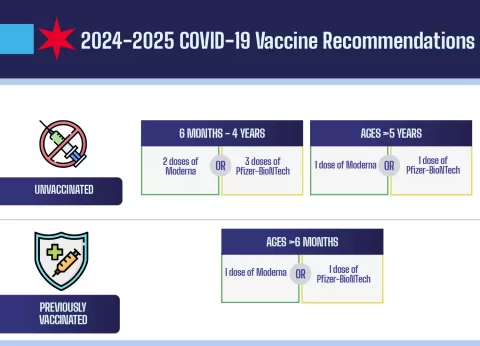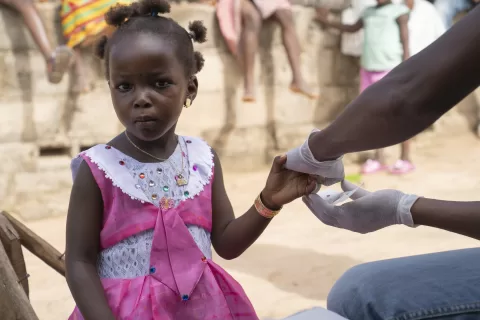The CDC vaccine recommendations are essential to public health, particularly as the landscape of infectious disease continues to evolve. Recent events have cast doubt on the integrity of these guidelines, particularly after changes enacted by the Health and Human Services (HHS) Secretary Robert F. Kennedy Jr. who revised critical advisements regarding vaccinations for children and pregnant individuals. This has raised vaccine integrity concerns, especially following the sudden resignation of CDC scientist Dr. Fiona Havers, who was integral in monitoring respiratory virus hospitalization statistics. Her departure highlights broader issues within the Advisory Committee on Immunization Practices (ACIP) which is now perceived to have members lacking sufficient expertise. With discussions around new vaccination policies on the horizon, understanding the implications of these alterations is more crucial than ever to ensuring the effectiveness of U.S. vaccine programs.
The recommendations set forth by the Centers for Disease Control and Prevention (CDC) play a pivotal role in shaping health protocols nationwide. In light of the recent shifts in vaccination guidance by the Department of Health and Human Services (HHS), experts are expressing concerns about the direction of vaccine policy and public health implications. The abrupt resignation of leading CDC scientists, combined with the restructuring of the ACIP, raises questions regarding the scientific reliability of vaccine recommendations moving forward. Furthermore, discussions about respiratory illness metrics and hospitalization trends are complicated by these changes, sparking debates about the future trust in immunization strategies. As the situation develops, the focus remains on maintaining evidence-based practices in vaccination amidst growing skepticism.
The Impact of CDC Vaccine Recommendations on Public Health
Recent changes to the CDC vaccine recommendations have sparked widespread concern among health professionals and the public alike. The shift, which eliminated advice for certain demographics such as children and pregnant women to receive specific vaccines, has ignited discussions about the potential ramifications on public health. Experts believe that such adjustments could lead to a rise in respiratory virus hospitalizations, undermining the significant progress made in reducing the burden of vaccine-preventable diseases. This potential increase in hospital visits emphasizes the necessity of maintaining robust vaccine policies that prioritize community health and safety.
Additionally, critics highlight that the new recommendations from Health and Human Services Secretary Robert F. Kennedy Jr. lack a solid scientific backing, as pointed out by former CDC officials. These changes not only confuse the public but may also erode trust in vaccine protocols that have been foundational to the nation’s health strategy. The CDC’s role in promoting vaccine integrity is crucial, and any modifications must be based on sound data and scientific rigor to ensure the continued protection of vulnerable populations.
Concerns Over CDC Vaccine Integrity and Scientific Standards
Following the recent resignations of key scientists from the CDC, concerns regarding vaccine integrity have come to the forefront. Dr. Fiona Havers, who oversaw the tracking of hospitalizations due to respiratory viruses, expressed apprehensions that the agency’s adherence to scientific standards would be compromised in light of recent administrative changes. The abrupt dismissal of seasoned ACIP members has exacerbated these fears, as the agency may lose critical expertise necessary for informed decision-making regarding vaccines.
Moreover, the CDC’s commitment to objective data analysis is increasingly being questioned after such significant internal upheaval. Former ACIP members have articulated that the historical reliance on a panel of knowledgeable scientists ensured CDC policies were rooted in thorough scientific evidence. A departure from this practice, especially in the current climate of vaccine skepticism, could gravely affect public confidence in vaccines and their recommendations.
Frequently Asked Questions
What are the recent CDC vaccine recommendations regarding respiratory virus vaccinations?
Recent CDC vaccine recommendations have undergone significant changes, particularly under the direction of HHS Secretary Robert F. Kennedy Jr. These changes include eliminating the advice for children, those not at high risk, and pregnant individuals to receive the vaccine. This decision has raised concerns about the impact on the U.S. vaccine program due to its potential effect on community immunity against respiratory viruses.
How do CDC changes to vaccine policy affect respiratory virus hospitalization data?
The recent CDC changes to vaccine policy have implications for respiratory virus hospitalization data tracking. Dr. Fiona Havers, a key scientist, resigned over concerns that data derived from the vaccine recommendations may not be utilized objectively. The changes have sparked debates about the integrity of the data and how it informs public health strategies.
What is the role of the ACIP vaccine committee in CDC vaccine recommendations?
The Advisory Committee on Immunization Practices (ACIP) plays a critical role in shaping CDC vaccine recommendations. This committee reviews data, assesses the effectiveness of vaccines, and makes recommendations on vaccine administration. Recent controversies arose as new ACIP members, some lacking extensive vaccine expertise, were appointed, prompting concerns about the future of vaccine policies.
Why did some CDC scientists resign in response to changes in vaccine recommendations?
Several CDC scientists, including Dr. Fiona Havers and Dr. Lakshmi Panagiotakopoulos, resigned in protest against recent changes to CDC vaccine recommendations that they believed compromised the agency’s scientific integrity. Their departures highlight growing worries about the objectivity and rigor applied to vaccine policy amidst shifts in the ACIP’s composition and leadership.
What are the implications of vaccine integrity concerns on public trust in CDC recommendations?
Concerns regarding vaccine integrity can significantly impact public trust in CDC recommendations. The recent resignations of CDC scientists and the alterations in vaccine policy led by HHS have prompted fears that the guidelines may not be based on sound scientific practices, thereby eroding confidence among healthcare professionals and the public in the CDC’s commitment to health safety.
| Key Points | Details |
|---|---|
| Dr. Fiona Havers Resignation | Dr. Havers resigned due to concerns over data utilization and recent changes to the CDC’s advisory group. |
| Impact of Changes | Recent revisions to CDC vaccine recommendations have raised alarms about vaccine policy integrity and scientific rigor. |
| ACIP Membership Concerns | The newly appointed ACIP includes skeptics and those lacking extensive vaccine expertise, potentially undermining the group’s decisions. |
| Historical Vaccine Trust | Despite claims of distrust, surveys show high compliance with CDC vaccine recommendations among children. |
| Exodus of Experts | A wave of resignations among senior CDC scientists raises concerns about the future of vaccine policy in the U.S. |
| Response from HHS | HHS emphasizes commitment to objective science and transparent analysis in determining vaccine policy. |
Summary
The recent developments surrounding CDC vaccine recommendations highlight significant concerns regarding the credibility and integrity of the decision-making process. With Dr. Fiona Havers’ resignation and the shift in ACIP membership, there is an urgent call to restore trust in CDC vaccine recommendations. The persistent narrative of high compliance among the U.S. population underscores the importance of maintaining a scientific approach to vaccination. Future vaccine policies must prioritize transparency and rigor to ensure public confidence and health security.
The content provided on this blog (e.g., symptom descriptions, health tips, or general advice) is for informational purposes only and is not a substitute for professional medical advice, diagnosis, or treatment. Always seek the guidance of your physician or other qualified healthcare provider with any questions you may have regarding a medical condition. Never disregard professional medical advice or delay seeking it because of something you have read on this website. If you believe you may have a medical emergency, call your doctor or emergency services immediately. Reliance on any information provided by this blog is solely at your own risk.







